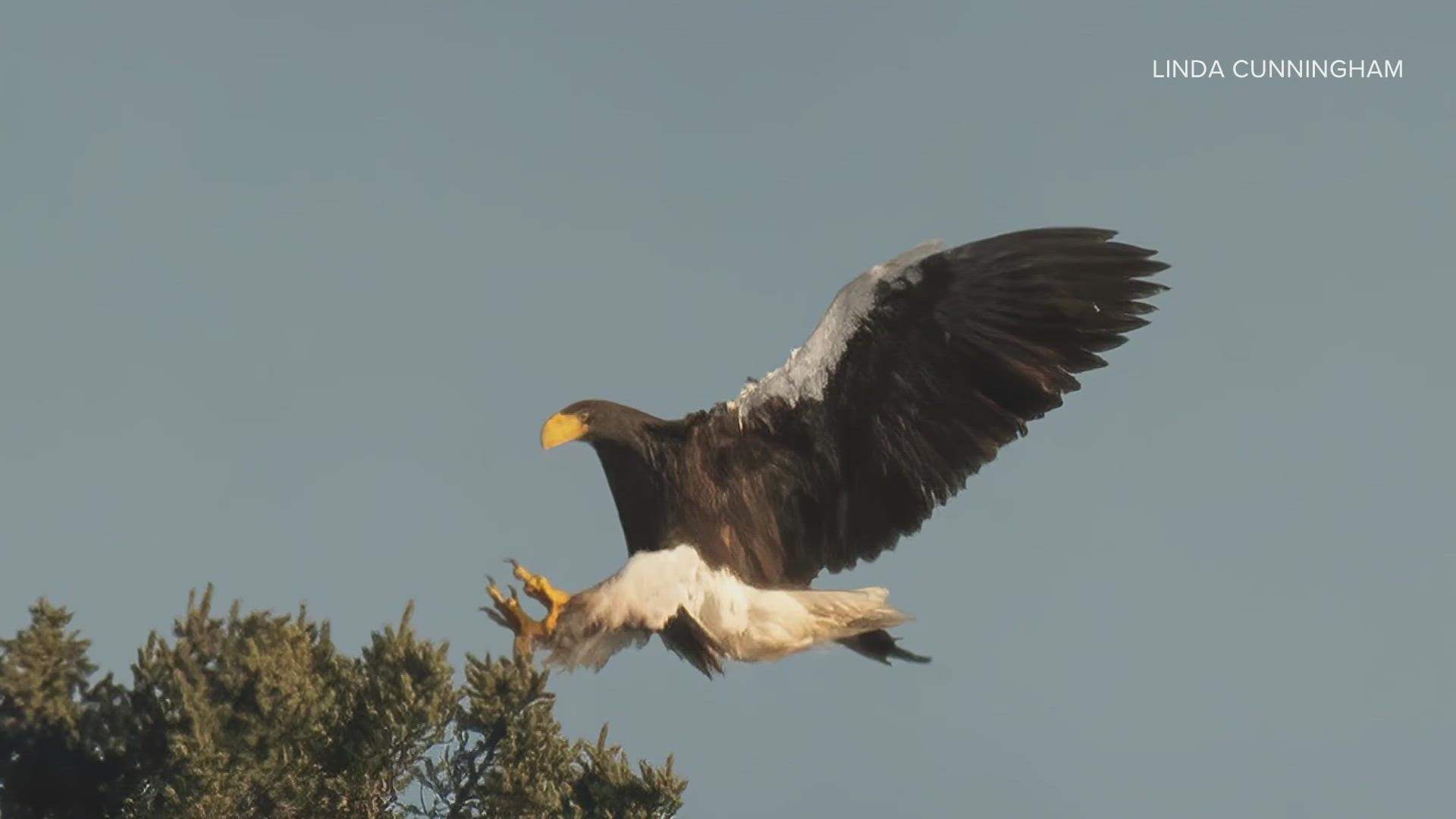GEORGETOWN, Maine — For the second year in a row, an extremely rare bird nearly twice the weight of a bald eagle has visited Maine.
The Steller's sea eagle normally thrives in the Sea of Okhotsk off the north coast of Japan and the eastern coast of Siberia. It's stumped scientists as to why the individual settled in Maine.
What is known, according to Maine Audubon, is the individual is around three to five years old. It has been eating local fish and birds and is in a similar climate and geography to what it would experience in northern Japan.
"I don't know what could possibly top this," Doug Hitchcox with Maine Audubon said. "Anytime we talk about rare birds now showing up from long distances, this has set a high bar."
Hitchcox said there are fewer than 5,000 Steller's sea eagles in the world, and the motives for one coming to Maine are unknown.
The eagle caused quite a traffic jam both winters it visited Maine, and now the town of Georgetown temporarily closed Flying Point Road due to the constant car traffic churning up the mud.
But Hitchcox also said the presence of an incredibly rare bird in Maine could be a sign of things to come, as a changing climate would likely alter the migration pattern of birds.
"We are seeing a lot of this pattern in birds expanding their ranges northward," Hitchcox said. "Even common birds here in Maine are expanding their range northward due to climate change."
Maine wildlife rescue organizations are seeing this impact local birds.
"Seeing a Steller's sea eagle for the first time, it's a completely different animal than what you're used to," Josh Bower from the Center for Wildlife in York said.
Bower said a good example is the barred owl, which could be harmed by the extreme weather events brought on by climate change. He said the owl waits for mice to burrow into soft snow before striking. But when deep freezes sweep the environment, it makes it impossible to hunt mice that way.
"Not only does it mean they won't be able to eat, [but] they may damage themselves," Bower said.
Bower added other species that only visit Maine in warm months are now living in the Pine Tree State permanently, like the eastern screech owl and the turkey vulture.
"I think the bigger problem here is the overall effect it's going to have on the environment and things like our resources and their food source and the effect it will have on our climate year-round," Bower said. "What we really need to take into account are the birds that used to be migratory but no longer are. And there are reasons for that, and those would be the ones I lean toward."
Bower said the Center for Wildlife is prepared to take on more species of birds and care for those that will be hurt by a changing climate.
Meantime back in the Midcoast, Mainers and tourists alike are still appreciating the present, where a rare bird of prey that dwarfs the competition is hanging around in Vacationland.

